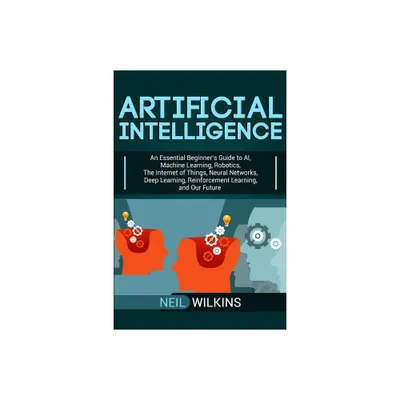Home
Humanizing Artificial Intelligence: Psychoanalysis and the Problem of Control
Loading Inventory...
Barnes and Noble
Humanizing Artificial Intelligence: Psychoanalysis and the Problem of Control
Current price: $109.99


Barnes and Noble
Humanizing Artificial Intelligence: Psychoanalysis and the Problem of Control
Current price: $109.99
Loading Inventory...
Size: Hardcover
*Product Information may vary - to confirm product availability, pricing, and additional information please contact Barnes and Noble
What does humankind expect from AI? What kind of relationship between man and intelligent machine are we aiming for? Does an AI need to be able to recognize human unconscious dynamics to act for the "best" of humans—that "best" that not even humans can clearly define?
Humanizing AI
analyses AI and its numerous applications from a psychoanalytical point of view to answer these questions.
This important, interdisciplinary contribution to the social sciences, as applied to AI, shows that reflecting on AI means reflecting on the human psyche and personality; therefore conceiving AI as a process of deconstruction and reconstruction of human identity. AI gives rise to processes of identification and de-identification that are not simply extensions of human identities—as post-humanist or trans-humanist approaches believe—but completely new forms of identification.
will benefit a broad audience: undergraduates, postgraduates and teachers in sociology, social theory, science and technology studies, cultural studies, philosophy, social psychology, and international relations. It will also appeal to programmers, software designers, students, and professionals in the sciences.
Humanizing AI
analyses AI and its numerous applications from a psychoanalytical point of view to answer these questions.
This important, interdisciplinary contribution to the social sciences, as applied to AI, shows that reflecting on AI means reflecting on the human psyche and personality; therefore conceiving AI as a process of deconstruction and reconstruction of human identity. AI gives rise to processes of identification and de-identification that are not simply extensions of human identities—as post-humanist or trans-humanist approaches believe—but completely new forms of identification.
will benefit a broad audience: undergraduates, postgraduates and teachers in sociology, social theory, science and technology studies, cultural studies, philosophy, social psychology, and international relations. It will also appeal to programmers, software designers, students, and professionals in the sciences.


















